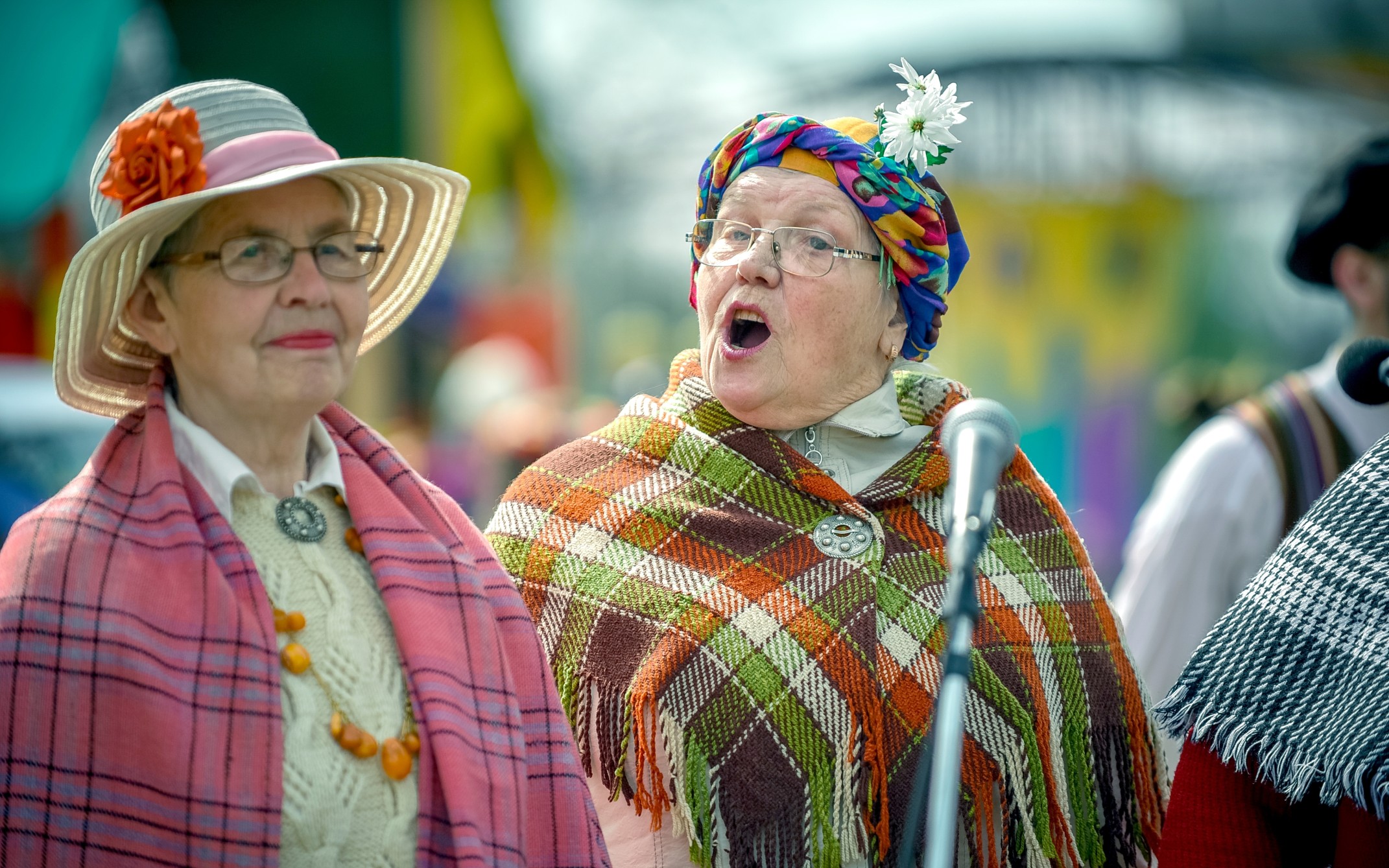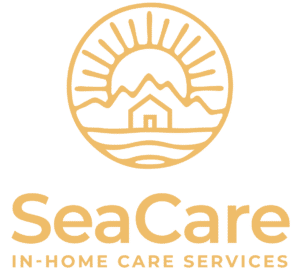The surprising benefits of creativity for healthy aging
by Katie Wright | Sep 28, 2021 | family support, activities for seniors, resources on aging | 0 Comments

If you are an older adult, you already know about the standard elements of healthy aging. You should:
- exercise
- make healthy food choices
- maintain meaningful social connections, and
- find intellectual stimulation.
There’s something else to add to your to-do list: be creative.
Research shows there are health benefits in finding creative outlets. That’s right, being creative can lead to positive changes in your physical and mental health.
What comes to mind when you hear the word creativity?
You might think it’s something for accomplished artists, novelists, or musicians. Maybe you don’t believe you’re creative, but think about the way author Neil Gaiman defines it:
“The world always seems brighter when you’ve just made something that wasn’t there before.”
According to Gaiman, everyone can be creative.
Creativity takes many different forms. It’s all around you and already part of your life. Every time you’re responsible for something new – a letter to a friend, a fresh idea, or a fall centerpiece of colorful gourds – that’s creativity in action.
What defines creativity?
It’s as universal as a famous painting or symphony. It’s as individual as your favorite song.
If the notion of creativity seems intimidating, consider your surroundings to find examples of your own original thinking – the way you’ve arranged pictures on a wall, wrapped a birthday gift for a friend, or told your grandchild a story.
Creativity is your personal expression. Maybe you dabble in watercolor painting, play the piano, or love to cook. These are creative expressions that enhance your life.
Creativity is also about your appreciation of the arts. Enjoying art is good for you, even if you’re not a participant. Check out an earlier SeaCare blog, How seniors and caregivers can enjoy art this month.
Creativity can be simply trying something new. It can be solving a problem or pledging to learn a new skill.
Some health benefits of creativity for seniors
Aging brings challenges to seniors and their families. In addition to the greater likelihood of chronic disease, there are also psychological, cognitive, and social changes that present difficulties.
Older adults who learn to adapt to the challenges of aging are more apt to enjoy a sense of well-being in their later years. This adaptability relies on creativity and developing ways to cope with change.
Here are some ways creative activities offer health benefits for older adults:
Creative pursuits allow a different means of self-expression. Aging can bring loss of the ability to effectively communicate with others. This leads to isolation and a diminished quality of life. When you create something it’s a personal expression. Pick up a paintbrush, write a letter, tell a story, or sing. You’ll feel a sense of accomplishment when you do.
Creative playfulness promotes resilience and optimism. Older adults who get in touch with their inner child have more fun – and open the door to joyful ways to connect with others. Be spontaneous and you’ll feel a little younger. You might even hold depression at bay for a while. You can learn something about creative play and conversation from the young children in your life.
Creative movement improves both physical and mental health. Whether it’s dancing, exercise, or choosing alternate routes for your daily walk, movement improves balance and flexibility. Moving briskly boosts blood flow to the brain and may help improve memory. Adding variety to your movement helps to stabilize your heart rate and stimulate the release of endorphins.
Daydreaming lowers your stress level and boosts your brainpower. Letting your mind wander can be relaxing, especially when combined with deep breathing. It also employs different parts of your brain, which can strengthen its networks. While you’re creatively daydreaming, you’re also boosting your creativity. Poet Maya Angelou wrote, “You can’t use up creativity. The more you use the more you have.”
Practicing a creative activity provides a sense of mastery and improves brain elasticity. When you find an activity you enjoy, like singing or writing, your regular participation offers confidence for trying different things. It’s a form of brain fitness that promotes development of new brain connections and pathways.
Why creativity matters for people with memory loss
Older adults with dementia often suffer depression and feelings of isolation. There is little in the way of medical treatment available for memory loss, but there are ways to help people learn to cope with their illness and more fully enjoy their lives.
Encouraging older adults to use their imagination with both verbal and nonverbal expression can make a difference.
A fascinating program called the Memory Ensemble offered people with memory loss a chance to experience improvisational acting. The goal was to help people learn to cope with their condition by tapping into the skills of expression they had not forgotten. According to program co-founder Dr. Christine Dunford, Ph.D., the Memory Ensemble helped participants decrease anxiety, improve their mood, feel a sense of belonging, and recognize their accomplishments.
Research has been done with music therapy and older adults with dementia. Clinical music therapist Kimmo Lehtonen, Ph.D., (University of Turku, Finland) says music sparks memories and meaningful feelings and helps patients come out of their isolation. He believes their overall well-being can improve, with some memory recall and opportunities to interact with others.
How seniors and caregivers can use creativity for health benefits
Start by reminding yourself that people have their own expressions of creativity. Adding creativity to your life can mean actively creating something yourself, or simply enjoying others’ creations.
Don’t worry too much about your end product or you’ll miss out on enjoying the process.
If you’re a caregiver, know that a creative outlet can provide a welcome respite from your care responsibilities. There are ways to find creative pleasure in your day, even in 15-minute increments.
Think about the things that bring you joy. Here are a few ideas:
Storytelling. Do you like to tell stories – or hear stories? This is an activity that involves creative imagination, an excellent brain exercise. Stories can be autobiographical or include cultural references. They can be pure fantasy. Create a legacy by recording yourself and sharing it with your family.
Dancing. Moving your body to music you like – doing dance steps or swaying your upper body while sitting – is physical artistic expression. It’s a good range-of-motion exercise that improves balance and flexibility. It also is a way to be imaginative and express feelings and emotions.
Singing. Put on your favorite songs and sing along. Singing can improve your pulmonary health because it involves a special kind of breathing and the use of respiratory muscles. Since you sing for pleasure, doing so can improve your mood.
Cooking. If cooking is something you enjoy, try some new creations. Find recipes that sound good and modify the ingredients to your taste. A favorite food site is Smitten Kitchen. It’s entertaining and offers plenty of recipe variations if you want to experiment. Food can be beautiful, so plan to take a photo of your creation.
Doodling. Grab a colorful pen or pencil and let it glide across the paper. Doodling is good for your brain because it engages your concentration enough to keep you focused on the present. It can be as whimsical and imaginative as you like, and it works to relieve stress and anxiety.
Working with clay. Use modeling clay or invite a grandchild to share their Play-Doh. It’s fun and uniquely expressive. It can also be therapeutic for arthritic hands.
Writing. Keep a handwritten journal with your favorite pen or pencil. Write for yourself in a stream of consciousness, where you don’t edit your material and you just record what comes to mind. If you’re writing for the sake of others – a poem, a short story, or a letter to the newspaper editor – take your time, jot a draft version, and return to it the next day to edit. Writing exercises your cognitive process and improves your comprehension and memory.
Knitting. This activity is beneficial in so many ways. It can help arthritic hands stay more dexterous. Knitting helps to redirect the brain’s focus, which can help with pain management as well as anxiety. It can help with weight control – busy hands may be less likely to reach for snacks out of boredom. Knitting is a calming activity that’s portable and easy to do in short bursts.
Learn about local resources — be inspired and take a free class
Redmond, WA artist Lynn Colwell, now in her 70’s, has an inspirational story about her own creative activity. She didn’t start painting until after her retirement in 2014 when she took a class. For most of her life, she had believed artists were born with their talent, so she didn’t think she could learn a new skill. She was wrong, and over the past few years, she’s turned her passion into a way to give to others.
Get your own creative juices flowing! If you’re a King County Library System patron, find a wide variety of free online daily art classes, each lasting about an hour, offered through Silver Kite Community Arts. There are arts programs for older adults, dementia-friendly art programs, and intergenerational arts experiences. Enter the password KCLS2020 at the KCLS login page. (Note: the linked article is from 2020, but the class calendar for 2021 is current).
If you want to really nurture your creativity, find a copy of The Artist’s Way by Julia Cameron. This gem has been around for nearly 30 years and has inspired many famous creators. Available through both the Seattle Public Library and King County Library Systems, it’s a workbook designed to help readers get in touch with their natural creativity.
At SeaCare we can help you find creative answers to your concerns about caregiving. Contact us to learn how we can support you.
Katie Wright writes about aging and senior wellness from Bellingham, WA. You can read more about her here.
References:
Flood, M., & Phillips, K. D. (2007). Creativity in older adults: A plethora of possibilities. Issues in Mental Health Nursing, 28, 389-411.
https://pubmed.ncbi.nlm.nih.gov/33579857/
https://www.todaysgeriatricmedicine.com/news/story1.shtml
If you or a loved one you know are looking for additional support during this time and are interested in scheduling a free in-home assessment, please contact SeaCare In-Home Care Services today! A SeaCare family member is standing by. 425-559-4339.



0 Comments